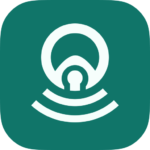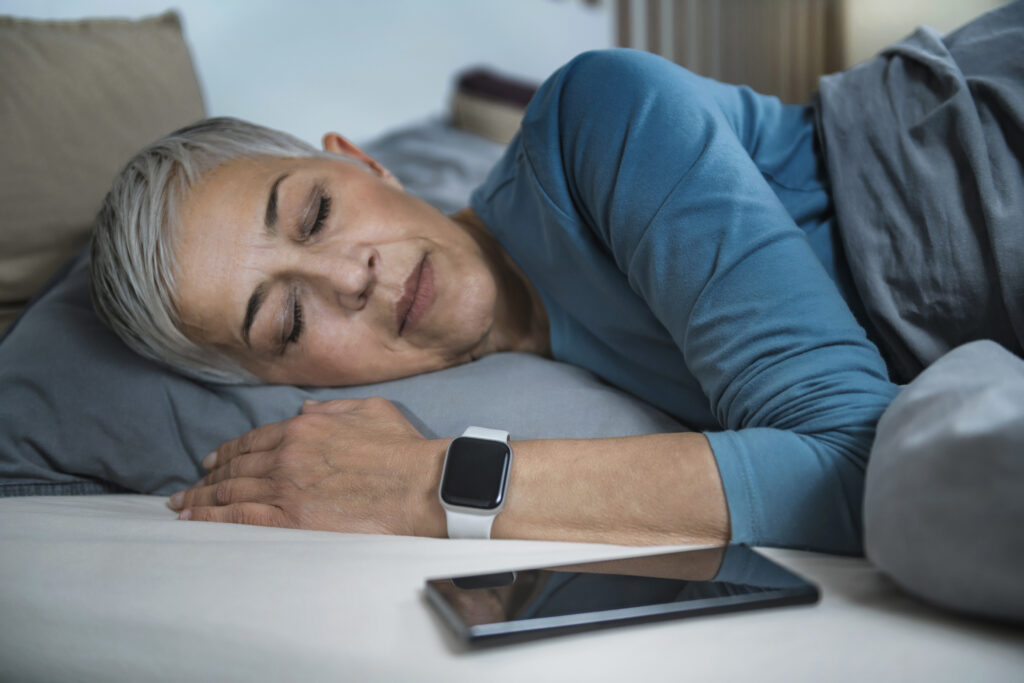Sleep apnea is a complex disorder that affects millions of people worldwide, compromising sleep quality and, consequently, overall health. Today, technological advances are playing a crucial role in making diagnosis and monitoring of this syndrome more accessible, precise and personalized. Thanks to connected devices, mobile applications and new telemedicine solutions, patients and professionals have innovative tools at their disposal to better manage this disorder. This roundup explores the most exciting innovations in sleep apnea treatment, and highlights Apnolab, a pioneering data management platform for monitoring this condition.
Connected devices for continuous, improved monitoring
Connected CPAP machines: a new era in apnea therapy
La Continuous positive airway pressure (CPAP) is the gold standard treatment for sleep apnea, particularly for moderate to severe cases. By keeping the airway open during sleep, CPAP machines offer immediate relief and are often essential in preventing associated health complications. Recent models, such as the ResMed AirSense 11 and AirMinifeature advanced connectivity functions. These connected devices record valuable data such as apnea frequency, duration of use and sleep quality, enabling healthcare professionals to tailor treatment to each patient's progress.
myAir from ResMed: the companion application for easy monitoring

ResMed's myAir application supports users in their treatment with a motivating approach. Thanks to detailed reports, patients can track their progress and understand areas for improvement. For example, the app provides daily sleep quality scores and personalized advice, encouraging users to adhere to treatment. With data accessible in real time for both patients and clinicians, this app proves particularly useful in maximizing treatment compliance, essential for lasting results.
Apnolab: a collaborative platform for optimal care
Data centralization and trend visualization
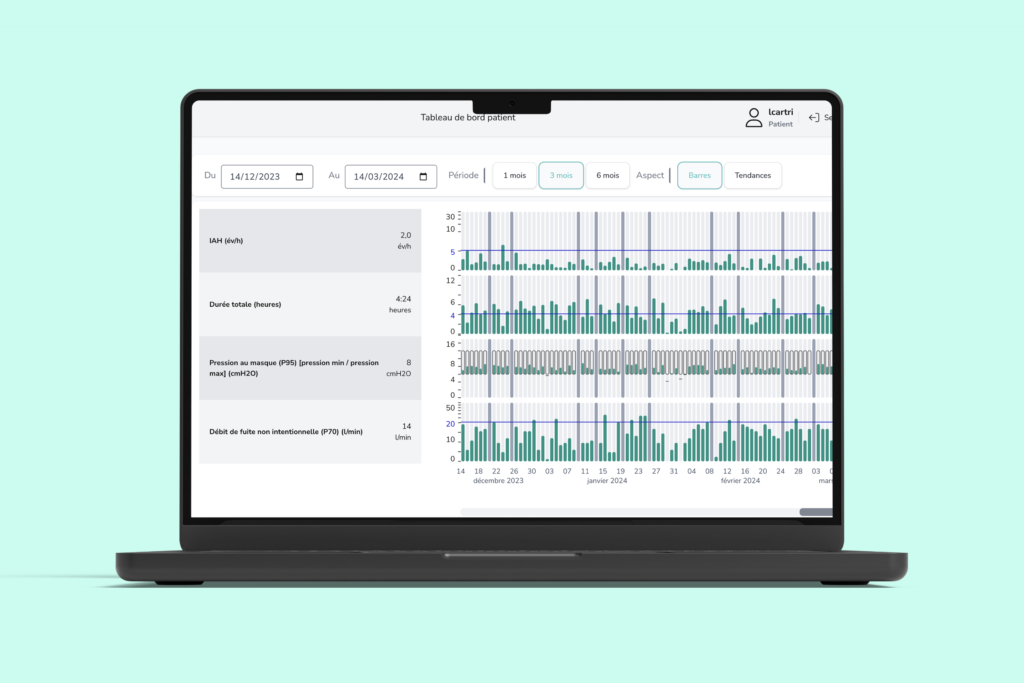
Apnolab represents a major advance in the monitoring of sleep apnea treatment. This connected platform brings together all relevant data from CPAP machines, centralizing each patient's care pathway on an intuitive interface. Healthcare professionals can easily consult sleep data, visualize trends and detect problem nights, facilitating rapid adjustment of treatment when necessary. By providing an overview, Apnolab helps doctors to assess treatment effectiveness more accurately and anticipate any necessary adjustments.
Multi-builder compatibility for greater flexibility
One of Apnolab's key strengths is its multi-builder compatibility. The platform works with well-known brands such as ResMed, Philips and Lowenstein, ensuring maximum flexibility for healthcare professionals. This compatibility enables clinicians to follow patients equipped with different devices without having to change systems, facilitating integrated, consistent management.
Patient feedback: a patient-centric approach
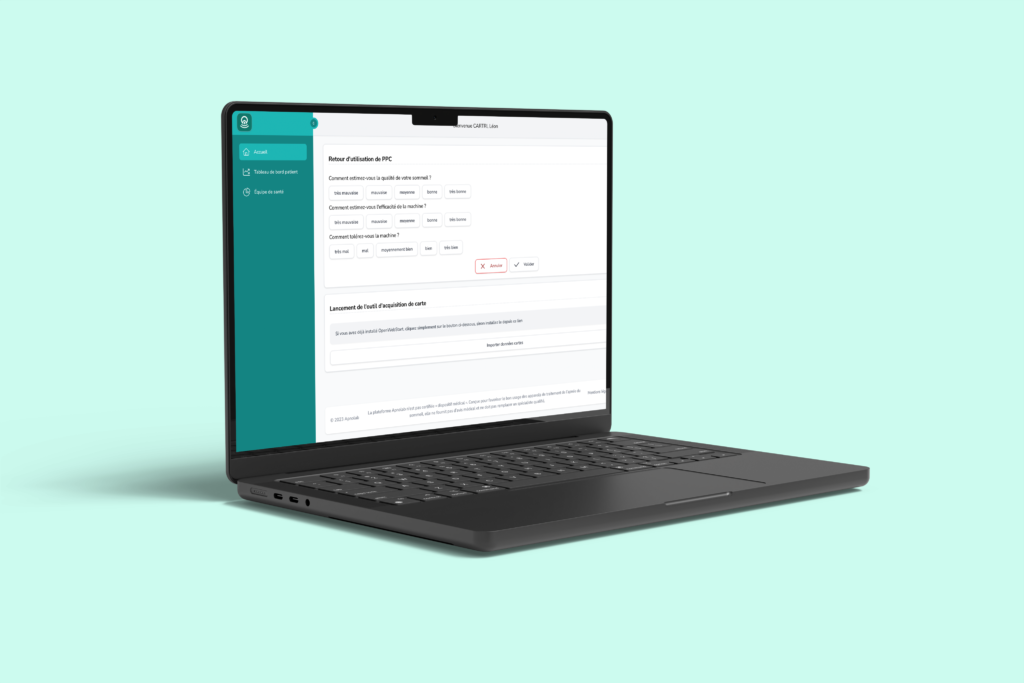
Apnolab doesn't just collect technical data. The platform also integrates feedback from patients via questionnaires (PROMs and PREMs) on their experience and feelings regarding treatment. This approach places the patient at the heart of therapeutic monitoring, enabling treatment to be tailored to individual tolerances and expectations, for better adherence and more effective results. By facilitating the active involvement of patients, Apnolab contributes to a treatment management that prioritizes both comfort and health.
Non-contact detection devices: practical, affordable monitoring
Withings Sleep Analyzer: the discreet sensor for home monitoring
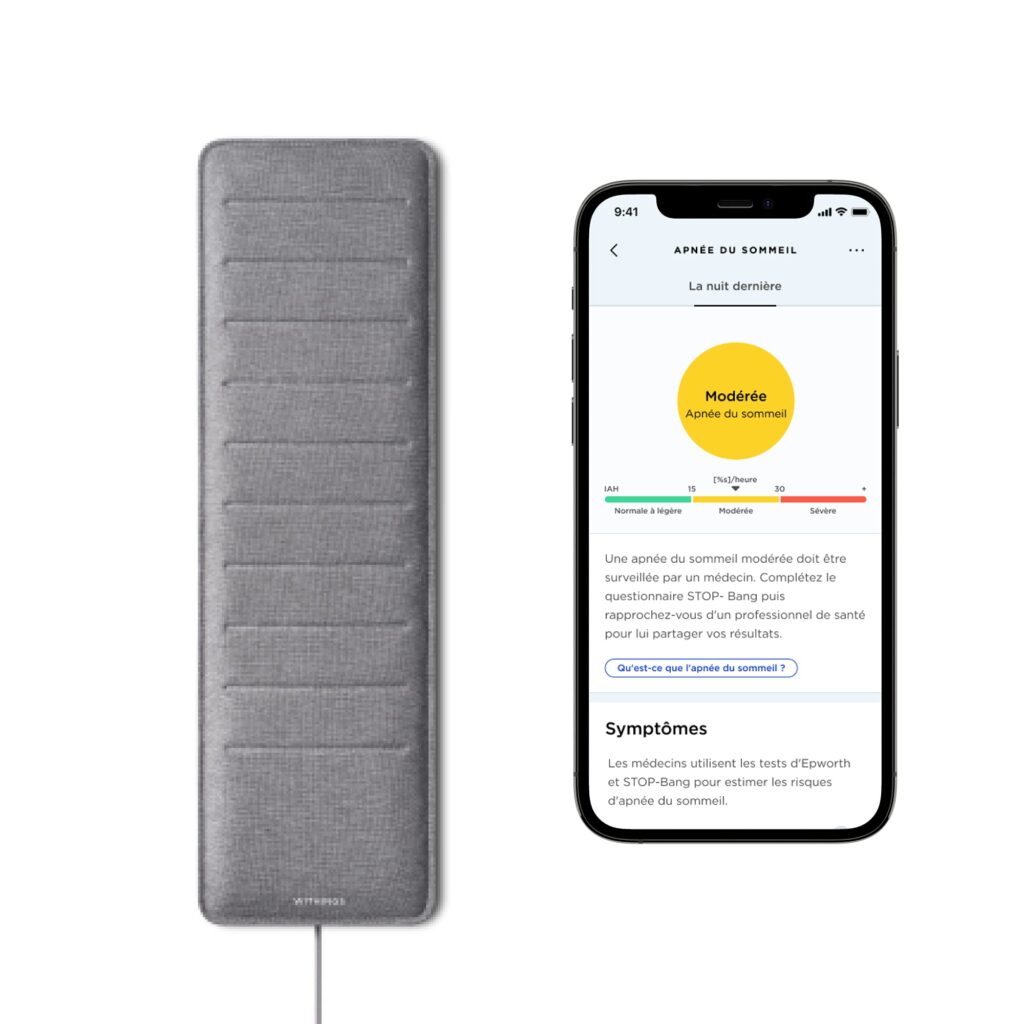
The Withings Sleep Analyzer is a popular option for those wishing to monitor their sleep without invasive equipment. Placed under the mattress, this sensor analyzes sleep cycles and detects signs of apnea using advanced algorithms. Users can consult their reports every morning and observe their progress. The advantage of this technology is its ease of use and the absence of physical contact, making the experience more comfortable for people who don't appreciate portable or bulky equipment.
Apple Watch: wearable technology for sleep
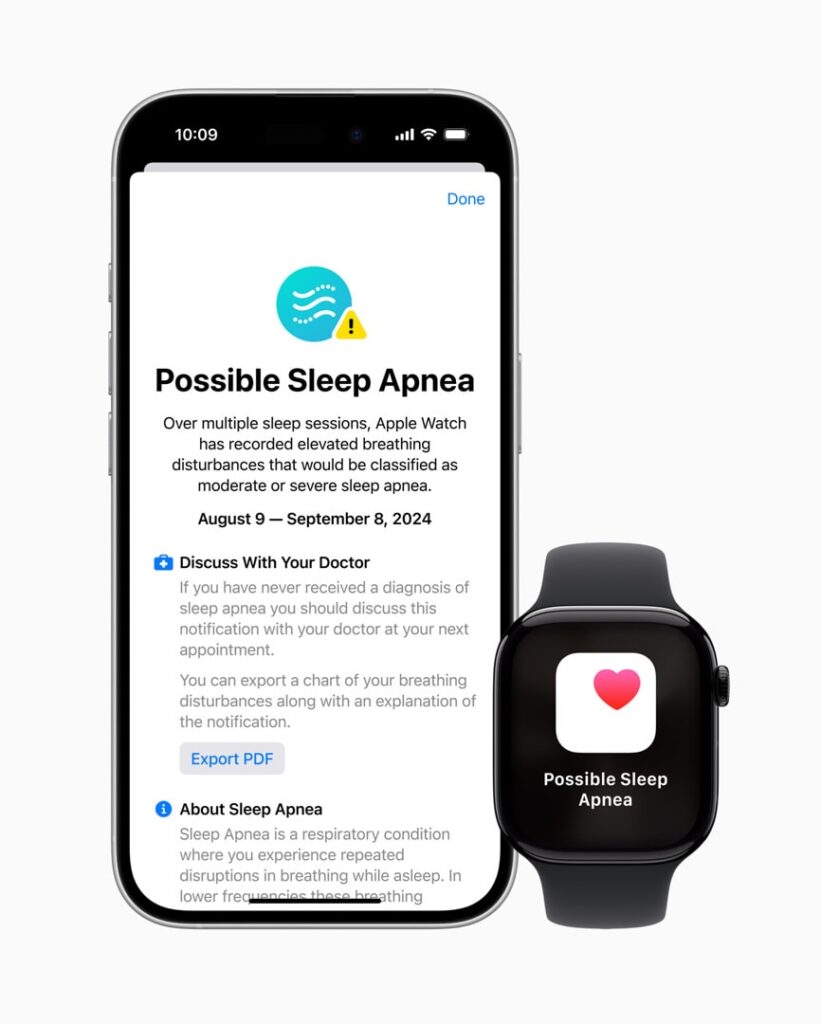
The latest version of theApple Watch offers advanced features for detecting signs of sleep apnea. Thanks to integrated motion sensors and oximeters, these devices measure heart rate and oxygen levels, helping to identify breathing abnormalities during the night. Although designed for general health monitoring, they are a useful first alert and complement for those seeking initial surveillance before in-depth diagnosis.
Apneal: a non-invasive monitoring solution

ResMed's Apneal attaches directly to the chest and uses smartphone sensors to track breathing movements throughout the night. It provides a detailed report on breathing quality, enabling users to monitor signs of apnea continuously and autonomously. This solution is particularly useful for those who want regular monitoring without the need for CPAP machines, offering an accessible, non-invasive detection and monitoring option.
Advanced treatment devices: Inspire and Sensapnea
Inspire: an innovative approach to neurostimulation

For patients who cannot tolerate CPAP machines, the Inspire device offers an alternative solution based on neurostimulation. This surgically implanted device stimulates the nerves controlling the tongue muscles to keep the airway clear during sleep. Inspire has proved effective for patients suffering from severe obstructive apnea, and is a sustainable option for those seeking an alternative to conventional treatments.
Telemedicine and artificial intelligence: personalized remote monitoring
The role of telemedicine in continuous monitoring
Advances in telemedicine today facilitate remote patient monitoring, reducing the need for frequent office visits. With remote monitoring technologies, sleep data can be sent to healthcare professionals in real time, enabling rapid adjustments to treatment. This remote monitoring is particularly useful for patients living in remote areas or with mobility difficulties.
Artificial intelligence: towards personalized treatments
TheArtificial intelligence (AI) plays a key role in sleep data analysis. Thanks to sophisticated algorithms, AI can analyze large volumes of data to detect abnormalities and predict the risk of complications. It is also capable of tailoring treatment to specific patient profiles, adapting recommendations and treatment thresholds. This level of precision is invaluable for optimizing care and proactively preventing complications.
Conclusion
Technological advances are profoundly transforming the treatment of sleep apnea, opening up possibilities for personalized, effective follow-up. Whether it's connected devices, non-contact sensing devices, neurostimulation or telemedicine, innovations offer new approaches that improve patients' quality of life.
Among these tools, Apnolab stands out as a comprehensive, collaborative platform, integrating CPAP data, multi-vendor compatibility and patient feedback for real-time monitoring. Thanks to these new technologies, patients have access to solutions tailored to their needs, and healthcare professionals benefit from a clear, centralized vision for adjusting care. Adopting these innovations means offering every patient the chance to regain restful sleep and live each day to the full.
